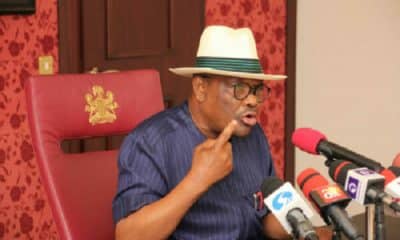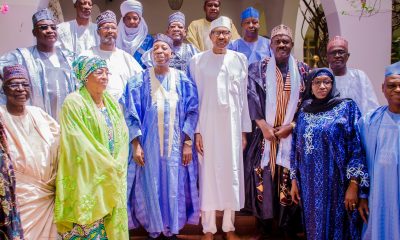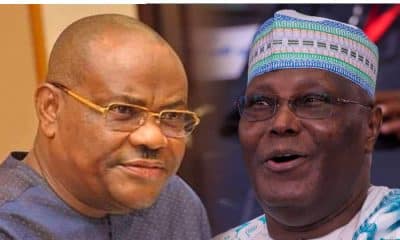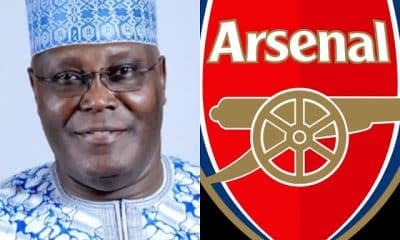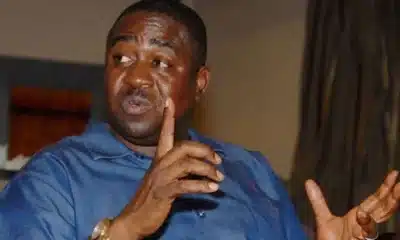Featured
End Of The Game For Nigerian Old Guard Politicians?
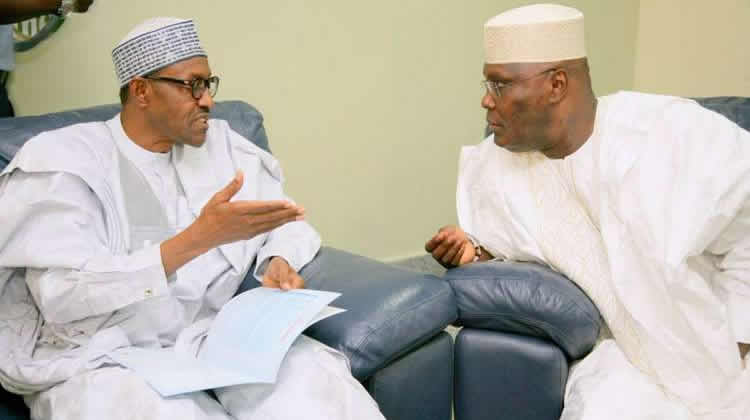
At the age of 76 and 72, the two main candidates running for Nigeria’s February presidential election do not really reflect their electorate: 60% of the population is under 30 and the median age of the 180-million-strong giant is 18 years old.
This election campaign, which still brings together the same political figures, unstoppable since independence, could, however, be the last for President Muhammadu Buhari and his main rival, Atiku Abubakar, and mark the end of the game for the old guard of Nigerian politicians.
On a black and white photo, found ten years ago and widely shared since on social networks, two young officers of the army play checkers.
Two of their comrades, back, look at the pieces and seem to think of a strategy to win the victory.
They are former military leaders of the country, Olusegun Obasanjo, Ibrahim Babangida, Ty Danjuma and Sani Abacha. The same, or almost, is always on the front of the political scene or behind the scenes.
A surfer has also linked this legend: “The game (of power) began a long time ago.”
Some 85 million voters are due to go to the polls on February 16, and although there are more than 70 candidates, the real battle is between the current president, Muhammadu Buhari, who was also in power in 1983 during the dictatorships. military, and Atiku Abubakar, vice president of Obasanjo between 1999 and 2007.
Both are former Nigerian politicians but above all, they have the support of the “godfathers”, their “ogas”, as they are called in Nigeria.
Obasanjo, 81, has chosen his former vice president despite past resentment, and regularly speaks against Buhari, denouncing his “incompetence” and his “dictatorial” drifts.
Ranked among the largest fortunes of Nigeria, in power during a military regime from 1976 to 1979 and first president of the democratic era, he continues to weigh heavily on the political spectrum.
Similarly, Ibrahim Babangida, 77, who toppled Muhammadu Buhari in the 1980s by a coup and whose military dictatorship (1985-1993) leaves little memory for Nigerians, still pulls the strings of the country through its immense wealth.
21st century
He had been suspected of bleaching $ 12 billion during the Gulf War, but as “all incredibly rich and influential Nigerians, he moves as a free man today,” says Forbes magazine.
“IBB” even appeared alongside one of the presidential candidates, Oby Ezekwesili, at her first meeting (she has since withdrawn from the race).
Sani Abacha, a bloodthirsty dictator who ruled the country from 1993 to 1998, died, but Obasanjo, Babangida or Danjuma, 79, a former general and defence minister, became political sponsors, who dubbed or dismissed candidates, choose political ascents, falls or nominations.
“When will these elders leave?” Asks Saadatu Falila Hamu, a 28-year-old anti-corruption lawyer based in Abuja. “We need young leaders who understand the world of the 21st century”.
This is the first time that Nigerians who did not know military dictatorships and were born after the democratic transition (1999) will vote.
“This is where our future is preparing,” said 47-year-old Fela Durotoye, one of the campaign’s underdog candidates (Alliance for a New Nigeria), during a presidential debate in mid-January.
Neither Buhari nor Atiku Abubakar participated, leaving the field open to smaller candidates. A rare fact since the beginning of the campaign, the discussion turned more to ideas and programs than networks of clientelism.
clientelism
“Younger candidates do not have the resources to win an election,” said Abubakar Sadiq, a Nigerian political scientist at Ahmadu Bello University in Zaria.
In Nigeria, plagued by extreme poverty, corruption and the negligence of its leaders, politics is largely conditioned by the support and the millions of dollars that candidates can invest in a campaign.
The rising generation, however, has “better ideas” for leading the country, says Sadiq.
The two main candidates have chosen younger, technocratic and popular vice presidents.
57-year-old Peter Obi (for the Democratic People’s Party of Abubakar) and 61-year-old Yemi Osinbajo (for the ruling Congress of Progressives) are expected to play an important role in the next mandate, given the next Head of State, whoever he is.
Voting will surely be a turning point in Nigeria’s political life, the last step in their rise to power in 2023.



